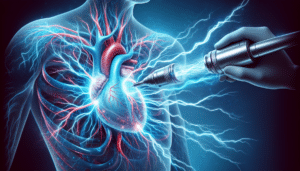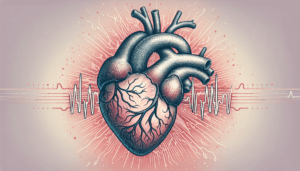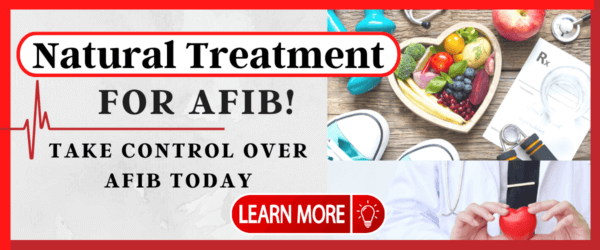If you’re on Eliquis, you might ponder the safety of having an occasional alcoholic drink. It’s critically important to understand the potential health implications involved. This article cuts right to the chase, detailing the risks and clear guidelines for safely managing alcohol and Eliquis intake. Without an information overload or a sales pitch, you’ll learn key considerations to protect your health while on this medication.
Key Takeaways
- Eliquis, an anticoagulant medication used to prevent blood clots, inhibits factor Xa in the clotting cascade and is particularly used in conditions like atrial fibrillation and following hip or knee replacement surgeries.
- Moderate alcohol consumption may reduce blood clotting and lead to thinner blood, while heavy drinking can increase the risk of spontaneous blood clots, raising multiple concerns when combined with blood thinners like Eliquis.
- Combining alcohol with Eliquis can significantly increase the risk of bleeding, and patients are advised to limit alcohol intake and consult their healthcare providers for personalized guidance on safe alcohol consumption while taking this medication.
Eliquis: An Overview
Eliquis, a pharmaceutical medication with the active ingredient apixaban, is an important medication for many patients. It’s used to prevent serious blood clots related to conditions like atrial fibrillation or complications following post-surgical procedures such as hip replacements. It is also used for the treatment and prevention of DVT and PE.
However, taking Eliquis is not the whole story. A comprehensive understanding of how Eliquis interacts with your body, particularly in relation to clot formation, is fundamental. Let’s further explore the working mechanisms of this potent medication.
How Eliquis Works
Eliquis inhibits factor Xa, a pivotal enzyme in the clotting cascade, thereby reducing the likelihood of clot formation. This inhibition disrupts the propagation phase of the coagulation cascade, thereby decreasing the ability to form blood clots.
The onset of action for Eliquis commences a few hours after the initial dose, with its peak effectiveness achieved approximately four hours in. The half-life of Eliquis in the body is about 12 hours. With a half-life of 12 hours, Eliquis stays in your system for about 2 to 3 days after you stop taking the medication. So, where does Eliquis stand in the broader context of blood clot prevention and treatment?
Common Uses for Eliquis
Eliquis is the go-to for a host of conditions that necessitate blood thinning. It prevents strokes in chronic conditions such as atrial fibrillation, by inhibiting factor Xa, an essential enzyme in the clot formation process, previous studies have shown Eliquis to be superior to warfarin in preventing strokes and systemic embolism while reducing the risk of major bleeding.
In the treatment of deep vein thrombosis (DVT), Eliquis plays a significant role by reducing the formation of blood clots and thereby helps to treat blood clots, mitigating the risk of a potentially dangerous pulmonary embolism. It’s also prescribed to patients who have undergone hip or knee replacement surgery to prevent the development of DVT and pulmonary embolism during the postoperative period.
Now that we comprehend Eliquis’s function, let’s turn our attention to another significant element: alcohol.
Alcohol’s Impact on Blood Clotting
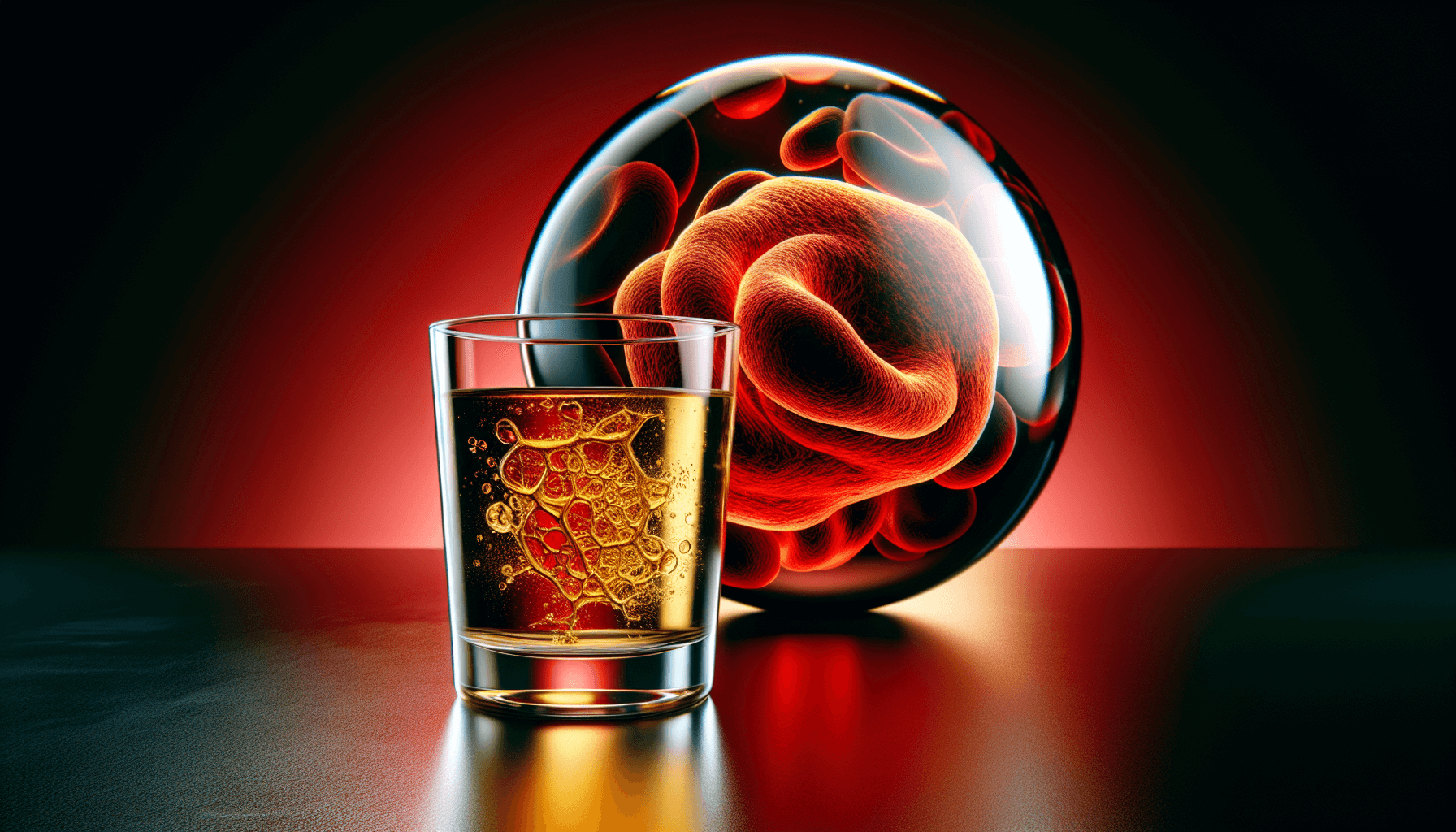
Alcohol, a substance often enjoyed socially, can have a profound impact on your body’s blood clotting process and blood vessels. In moderate amounts, alcohol can decrease your blood’s clotting ability, leading to a thinner consistency and reduced clot formation. However, the tale of alcohol’s impact on blood clotting doesn’t end there.
Interestingly, heavy alcohol consumption tells a different story. It can raise your risk of blood clots by increasing your platelet count and activating blood platelets, making them more prone to spontaneous clotting. Understanding the contrasting effects of moderate and heavy alcohol consumption on blood clotting is vital.
Moderate vs. Heavy Drinking
So, what separates moderate drinking from heavy drinking? Moderate drinking is typically described as consuming no more than 3-4 drinks per day for men and no more than 2-3 drinks per day for women. Conversely, heavy drinking is characterized by consuming 5 or more drinks on any day for men, or 4 or more drinks on any day for women.
When consumed in low to moderate amounts, alcohol can thin the blood and decrease the risk of clots. However, excessive alcohol consumption can elevate the number of platelets in the bloodstream, raising the likelihood of spontaneous clot formation and making you more susceptible to clot development. What are the implications when blood thinners and alcohol are combined, such as in the case of using a blood thinner like Eliquis?
The Dangers of Combining Alcohol and Eliquis
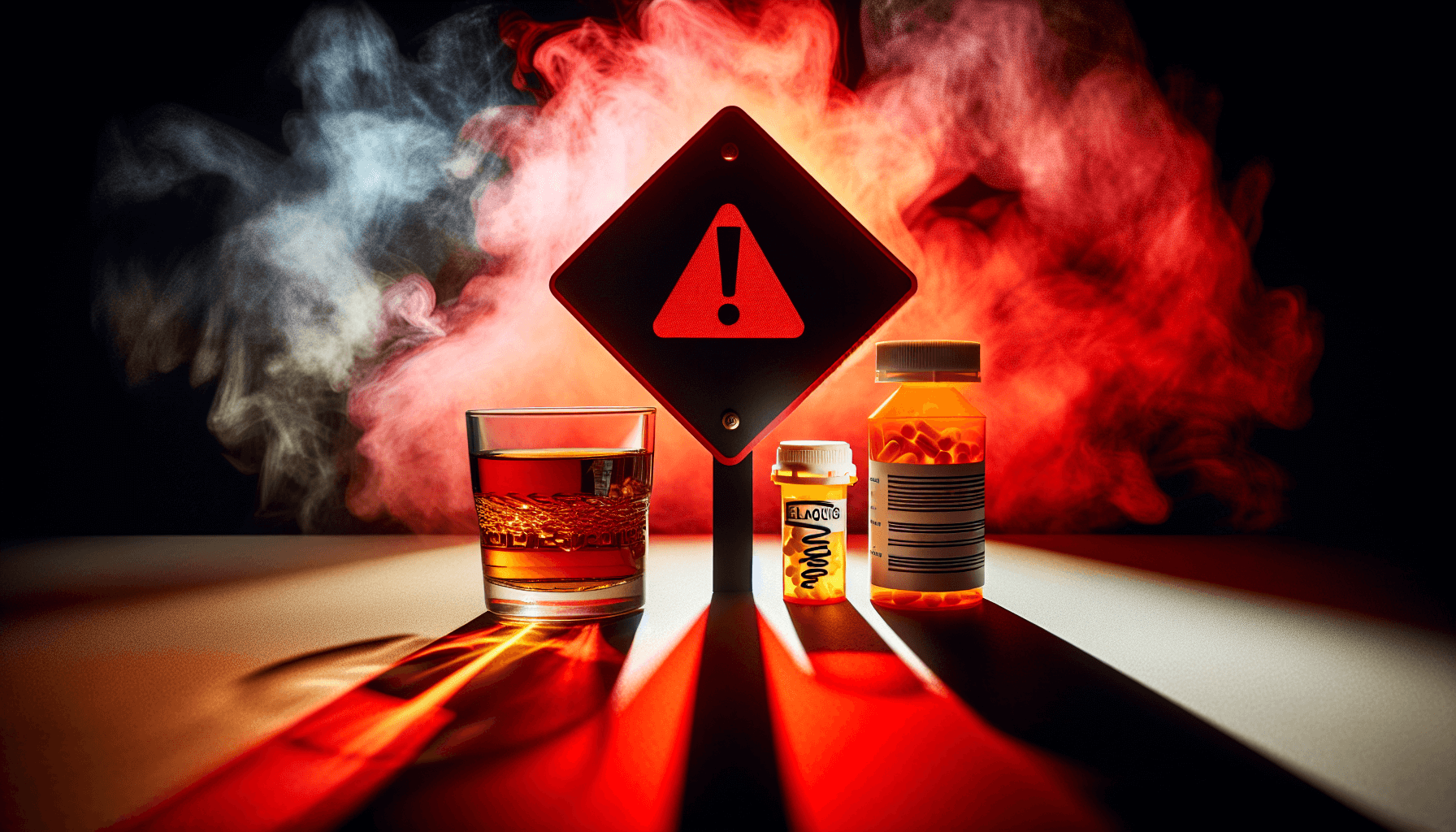
The combination of alcohol and Eliquis can lead to some serious health risks. While alcohol does not directly interact with the mechanism of Eliquis, its combination can exacerbate it’s blood-thinning effect. This can lead to an increased risk of internal bleeding, including in the stomach and intestines, as well as in rare cases such as intracranial hemorrhage.
Moreover, alcohol can potentially augment and extend the effects of Eliquis as a blood thinner, thereby increasing the risk of bleeding. This interaction may result in a prolonged presence of the medication in the body, potentially causing complications.
Effects on Bleeding Risk
The combination of alcohol and Eliquis can significantly increase your risk of bleeding. According to a study indicated by the American Blood Clot Association, the alcohol content in 1 or 2 drinks may reduce blood clotting time and amplify the anticoagulant effect of Eliquis. This effect can be quite concerning, especially when considering the prolonged presence of Eliquis in the body due to alcohol consumption.
This heightened risk of bleeding can be quite dangerous, potentially escalating minor injuries into severe bleeding events. And the danger doesn’t stop there. Alcohol can also interfere with the efficiency of Eliquis.
Interference with Medication Efficacy
Consuming alcohol can potentially interfere with the effectiveness of Eliquis. Moderate alcohol consumption can potentially impact the absorption rate of Eliquis in the body, consequently affecting the duration of the drug’s clot-preventing effectiveness and leading to an increased risk of bleeding.
These potential health complications highlight the importance of understanding the implications of alcohol consumption while taking Eliquis. This brings us to an important question: How can one manage alcohol intake while on Eliquis?
Increased Risk of Gastric Ulcers and GI Bleeding with Chronic Alcohol Usage
Chronic alcohol consumption is known to irritate and erode the gastric mucosa, which can lead to the development of gastric ulcers. These ulcers are painful sores that form on the lining of the stomach and can cause significant discomfort. Over time, the persistent irritation from alcohol can weaken the stomach lining, increasing the susceptibility to ulcers.
Alcohol-induced gastric ulcers are a particular concern for individuals taking anticoagulants like Eliquis. Since Eliquis works by inhibiting blood clotting to prevent strokes and blood clots, the presence of a gastric ulcer poses a heightened risk of gastrointestinal (GI) bleeding. The combination of a compromised stomach lining due to an ulcer and the blood-thinning effect of Eliquis can significantly amplify the chances of a bleed.
Furthermore, chronic alcohol use can exacerbate the effects of Eliquis, potentially leading to prolonged bleeding times. This can turn otherwise manageable gastric ulcers into serious medical emergencies due to the risk of uncontrollable bleeding. It is therefore crucial for patients on Eliquis to understand the risks associated with chronic alcohol use, particularly concerning the development of gastric ulcers and the potential for increased GI bleeding.
Recommendations for Alcohol Consumption While Taking Eliquis
If you’re taking Eliquis, you might be wondering how much alcohol, if any, is safe to consume. The guidelines generally advise limiting alcohol consumption to no more than 1 drink per day for women and no more than 2 drinks at a time for men when taking Eliquis. However, these are general recommendations and individual circumstances may differ. It is also important to note the effects of frequent alcohol consumption on atrial fibrillation.
The Effects of Daily Alcohol Use on Atrial Fibrillation
Frequent and daily alcohol consumption has been observed to exacerbate symptoms associated with atrial fibrillation, the most common type of serious arrhythmia. Studies indicate that regular alcohol intake can increase the overall burden of atrial fibrillation, leading to more frequent and severe episodes, even in low, but frequent quantities.
The relationship between alcohol and AFib is particularly concerning as alcohol can act as a trigger for AFib episodes. The exact mechanisms are complex and multifaceted, but it is known that alcohol can affect the electrophysiology of the heart, altering its normal rhythm.
The term “holiday heart syndrome” has been coined to describe the occurrence of atrial fibrillation episodes after periods of heavy drinking, such as during holidays or weekends. However, it’s not only binge drinking that poses a risk; even moderate, daily consumption has been linked to an increased likelihood of developing atrial fibrillation over time.
Patients with a history of AFib are often advised to limit or completely abstain from alcohol to reduce the frequency of AFib episodes and associated complications. Reducing alcohol intake can be an important step in managing the condition and improving overall heart health.
It’s crucial to remember that while these recommendations provide a general guideline, they do not substitute for personalized advice from a healthcare professional. Let’s further explore why it’s vital to consult with your doctor.
Talking to Your Doctor
Whether you’re a casual drinker or enjoy a glass of wine with dinner, it’s essential to discuss your alcohol consumption habits with your doctor if you’re taking Eliquis. Physicians can provide personalized advice based on your individual circumstances.
Before initiating Eliquis, it is crucial to engage in a discussion with your doctor and communicate any inquiries or apprehensions you may have. Additionally, you may access guides from the Eliquis website containing questions related to:
- DVT/PE
- Blood thinners
- Eliquis
- Stroke risk associated with AFib and Eliquis.
Limiting Alcohol Intake
It’s essential to apply moderation when it comes to alcohol consumption while on Eliquis. Exceeding the recommended alcohol intake while using Eliquis may elevate the likelihood of experiencing bleeding and internal bleeding, as well as extending the medication’s effects and increasing the risk of stomach bleeding.
Physicians may recommend individuals on Eliquis to practice moderation in their alcohol consumption. It is advisable to refrain from combining Eliquis with alcohol, as moderate alcohol consumption can have anticoagulant effects. But what should one do if alcohol consumption becomes a problem?
Recognizing and Addressing Alcohol Misuse
Recognizing and addressing alcohol misuse is a crucial step for anyone, especially for those taking blood thinners like Eliquis. Alcohol misuse spans a spectrum from mild to severe and encompasses conditions like alcoholism and binge drinking, which may jeopardize health and safety.
The levels of severity associated with alcohol misuse are categorized as mild (2–3 criteria), moderate (4–5 criteria), or severe (6 or more criteria). How does one recognize alcohol misuse and what actions can be taken to address it?
Signs of Alcohol Abuse
When alcohol consumption begins to interfere with an individual’s health, safety, and daily activities, it may be a sign of alcohol abuse. Signs of alcohol abuse include frequent binge drinking, inability to control alcohol intake, and negative impacts on personal or professional life.
Casual drinking alcohol is defined by moderate and sporadic alcohol intake without resulting in any negative outcomes, whereas alcohol abuse entails excessive and compulsive drinking behaviors that have a detrimental impact on an individual’s health and daily activities. Mixing alcohol can exacerbate these negative effects. If you or someone you know shows signs of alcohol abuse, it’s essential to seek professional help.
Seeking Professional Help
Seeking professional help for alcohol misuse is an essential step in maintaining your health, especially if you’re taking medications like Eliquis. Numerous treatment options are available for alcohol misuse, including treatments led by health professionals, FDA-approved medications, and behavioral therapies.
The role of a recovery coach involves:
- Providing personalized guidance to individuals struggling with alcohol misuse
- Assisting them in accessing resources
- Helping them avoid relapse
- Establishing a supportive recovery routine
Having discussed how to manage alcohol misuse, let’s examine the possible interactions between Eliquis and other medications.
Summary
Understanding the interactions between alcohol and Eliquis is crucial for maintaining your health. While moderate alcohol consumption can potentially increase the effectiveness of Eliquis, it can also heighten the risk of bleeding. Therefore, it is generally recommended to limit alcohol intake while on this medication. Additionally, informing your healthcare provider about all the medications and supplements you’re taking is vital for safe and effective treatment. Recognizing and addressing alcohol misuse is also essential. Remember, when it comes to your health, it’s better to be safe than sorry.
Frequently Asked Questions
What happens if you drink alcohol on blood thinners?
Drinking alcohol while on blood thinners can exacerbate the effects of both substances and reduce the blood’s ability to clot. This can also increase the risk of bleeding. Be cautious about alcohol consumption when taking blood thinners.
What should I avoid while taking Eliquis?
While taking Eliquis, it’s important to avoid certain medications like aspirin and aspirin-like medications, as well as certain medications for fungal infections and seizures. Additionally, it’s recommended to avoid grapefruit and grapefruit products due to their interaction with Eliquis.
Can you drink coffee on Eliquis?
You can drink coffee while taking Eliquis, as there are no specific interactions between caffeine and the medication. It’s important to follow your doctor’s guidance and monitor any potential effects.
What are the potential dangers of combining Eliquis with other medications?
Combining Eliquis with certain medications, such as NSAIDs, SSRIs, aspirin, and herbal remedies, can significantly increase the risk of bleeding. It’s important to consult with a healthcare professional before combining any medications.
What measures can be implemented to mitigate alcohol misuse in individuals taking Eliquis?
To mitigate alcohol misuse in individuals taking Eliquis, it is recommended for them to practice moderation in alcohol consumption and consider behavioral therapies, such as counseling, for additional support. Professional guidance is essential in addressing this concern.
The Best Atrial Fibrillation Book
Your Complete Guide To AFib: The Essential Manual For Every Patient With Atrial Fibrillation

Shop AFib Products on Amazon
KardiaMobile 6-Lead Personal EKG Monitor – Six Views of The Heart – Detects AFib and Irregular Arrhythmias – Instant Results in 30 Seconds – Works with Most Smartphones - FSA/HSA Eligible
13% Off
KardiaMobile 1-Lead Personal EKG Monitor – Record EKGs at Home – Detects AFib and Irregular Arrhythmias – Instant Results in 30 Seconds – Easy to Use – Works with Most Smartphones - FSA/HSA Eligible
$79.00 (as of June 5, 2025 06:30 GMT -06:00 - More infoProduct prices and availability are accurate as of the date/time indicated and are subject to change. Any price and availability information displayed on [relevant Amazon Site(s), as applicable] at the time of purchase will apply to the purchase of this product.)
Apple Watch Series 9 [GPS 41mm] Smartwatch with Storm Blue Aluminum Case with Silver Sport Band M/L. Fitness Tracker, Blood Oxygen & ECG Apps, Always-On Retina Display
(as of June 5, 2025 07:43 GMT -06:00 - More infoProduct prices and availability are accurate as of the date/time indicated and are subject to change. Any price and availability information displayed on [relevant Amazon Site(s), as applicable] at the time of purchase will apply to the purchase of this product.)
Fitbit Sense 2 Advanced Health and Fitness Smartwatch with Tools to Manage Stress and Sleep, ECG App, SpO2, 24/7 Heart Rate and GPS, Shadow Grey/Graphite, One Size (S & L Bands Included)
20% Off
OMRON 2-in-1 Upper Arm Blood Pressure Monitor & 1-Lead EKG Monitor - Clinically Validated Blood Pressure Arm Cuff & Machine - Use OMRON Connect App
17% Off
Samsung Galaxy Watch 6 44mm Bluetooth Smartwatch, Fitness Tracker, Personalized HR Zones, Advanced Sleep Coaching, Heart Monitor, BIA Sensor, Health Wellness Insights, Big Screen, US Version, Graphite
52% Off $329.99 (as of June 5, 2025 06:30 GMT -06:00 - More infoProduct prices and availability are accurate as of the date/time indicated and are subject to change. Any price and availability information displayed on [relevant Amazon Site(s), as applicable] at the time of purchase will apply to the purchase of this product.)
Natural Rhythm Triple Calm Magnesium 150 mg - 120 Capsules – Magnesium Complex Compound Supplement with Magnesium Glycinate, Malate, and Taurate. Calming Blend for Promoting Rest and Relaxation.
$20.77 ($0.17 / Count) (as of June 5, 2025 06:30 GMT -06:00 - More infoProduct prices and availability are accurate as of the date/time indicated and are subject to change. Any price and availability information displayed on [relevant Amazon Site(s), as applicable] at the time of purchase will apply to the purchase of this product.)
Pure Encapsulations Magnesium (Glycinate) - Supplement to Support Stress Relief, Sleep, Heart Health, Nerves, Muscles, and Metabolism* - with Magnesium Glycinate - 180 Capsules
$44.60 ($0.25 / Count) (as of June 5, 2025 07:43 GMT -06:00 - More infoProduct prices and availability are accurate as of the date/time indicated and are subject to change. Any price and availability information displayed on [relevant Amazon Site(s), as applicable] at the time of purchase will apply to the purchase of this product.)

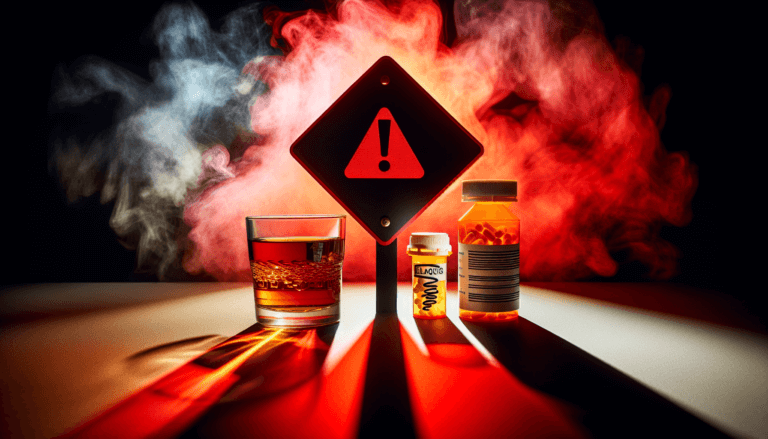













![Apple Watch Series 9 [GPS 41mm] Smartwatch with Storm Blue Aluminum Case with Silver Sport Band M/L. Fitness Tracker, Blood Oxygen & ECG Apps, Always-On Retina Display #1](https://m.media-amazon.com/images/I/311xwtp4mFL._SL100_.jpg)
![Apple Watch Series 9 [GPS 41mm] Smartwatch with Storm Blue Aluminum Case with Silver Sport Band M/L. Fitness Tracker, Blood Oxygen & ECG Apps, Always-On Retina Display #2](https://m.media-amazon.com/images/I/41j+8AaUGsL._SL100_.jpg)
![Apple Watch Series 9 [GPS 41mm] Smartwatch with Storm Blue Aluminum Case with Silver Sport Band M/L. Fitness Tracker, Blood Oxygen & ECG Apps, Always-On Retina Display #3](https://m.media-amazon.com/images/I/41jIyxZitnL._SL100_.jpg)
![Apple Watch Series 9 [GPS 41mm] Smartwatch with Storm Blue Aluminum Case with Silver Sport Band M/L. Fitness Tracker, Blood Oxygen & ECG Apps, Always-On Retina Display #4](https://m.media-amazon.com/images/I/41IpNJERjCL._SL100_.jpg)
![Apple Watch Series 9 [GPS 41mm] Smartwatch with Storm Blue Aluminum Case with Silver Sport Band M/L. Fitness Tracker, Blood Oxygen & ECG Apps, Always-On Retina Display #5](https://m.media-amazon.com/images/I/31o17yhfYpL._SL100_.jpg)
































